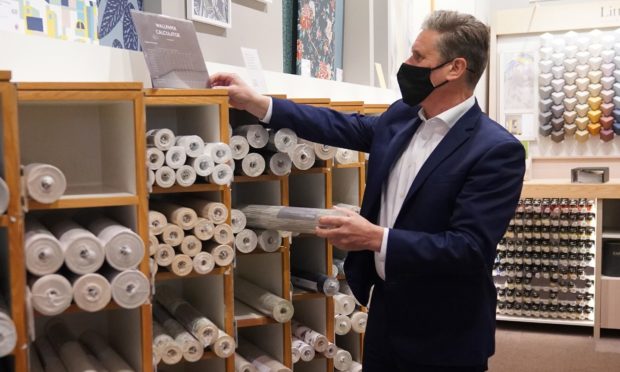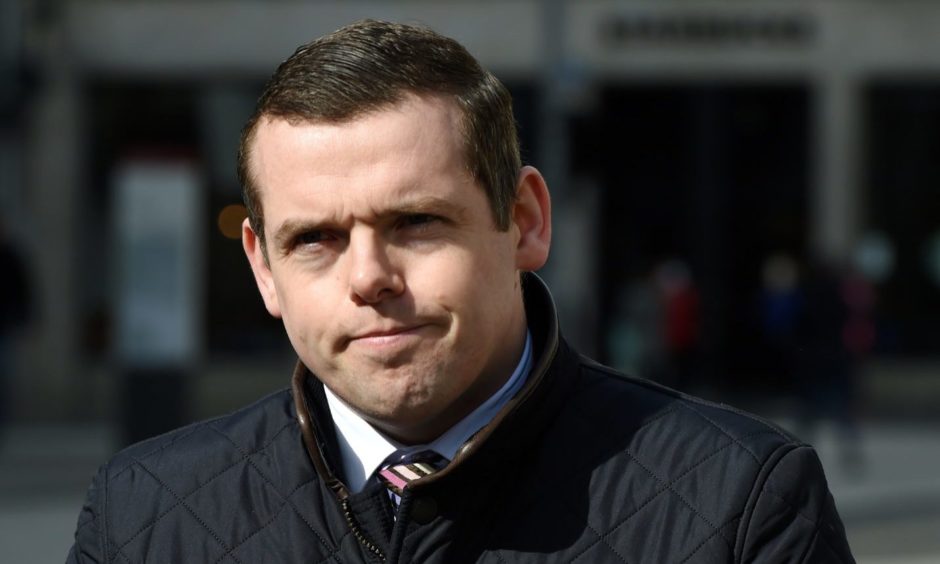Many years ago, when Alex Salmond and I were both usefully employed – he as First Minister of Scotland and I as editor of this newspaper – he attended a lunch with Scotland’s newspaper publishers.
The meeting took place under Chatham House rules, binding those present to confidentiality, but one anecdote did escape. Mr Salmond was bemoaning what he saw as political bias, pointing out that, at that time, not one of Scotland’s newspapers supported independence. Apparently, he accused all the country’s newspaper editors of being politically aligned with either the Conservatives or Labour, but named me as the exception to that because I “hate all politicians equally”. I can’t be absolutely certain of the veracity of that recollection, but it certainly has a ring of truth.
Let me make it clear that I don’t hate politicians; I just hate the way they operate. Nowhere has that been more evident than in the last few weeks as Scotland, England and Wales prepare for elections on Thursday (May 6) and politicians fall over themselves to claim valuable TV airtime or exposure in newspapers and online. The downside of such media coverage, however, is that one slip of the tongue can signal the end of their political careers.
All the parties are now run by spin doctors who lay down the law on what can, and cannot, be said. The number one rule appears to be that they must not say anything which can come back and bite their party leader. Which is why we are routinely exposed to the infuriating, embarrassing spectacle of senior politicians point-blank refusing to give a straight answer to the most straightforward, unambiguous questions.
Politicians are routinely evasive and insincere
I watched with a mixture of amusement and exasperation an interview with Scottish Tory leader Douglas Ross on Sunday’s Andrew Marr show. He was reminded that he had consistently stated that Nicola Sturgeon should resign as First Minister if the inquiries into her role in the Alex Salmond affair concluded that she had broken the Ministerial Code. Not unreasonably, Andrew Marr asked whether Boris Johnson should therefore resign if the inquiries into the refurbishment of his Downing Street flat delivered a verdict that he had broken the code.
Politicians live in a bubble, believing that they are superior beings and that if they consider something important then voters will also consider it important. How wrong they are
Twice Ross side-stepped the question, choosing instead to suggest that we should await the outcome of those inquiries before passing judgement, and only grudgingly conceded that resignation should be the outcome when it became clear the questioner was not giving up.
Another example of a politician being evasive didn’t surprise me, because that is what they routinely do. What does surprise me is that they seem to believe people don’t see through this veil of insincerity; the shameless double standards they employ at every twist and turn.
It is just another example of how out of touch politicians of all parties are with real life. They live in a bubble, believing that they are superior beings and that if they consider something important then voters will also consider it important. How wrong they are.
We have come to expect sleaze
If they want proof that their priorities are out of kilter with ours, they need look no further than the spat over Boris Johnson’s flat refurbishment. All opposition MPs seized on the suggestion that the PM might have had some financial assistance paying for the purging of his predecessor’s John Lewis-inspired decor as evidence that the Tories were mired in sleaze. One after another lined up to deliver what they hoped would be the final blow to Boris’s political career.
Labour leader Keir Starmer provided a puerile photo opportunity in the wallpaper department of a John Lewis branch to drive home a message of some sort. Labour MPs were convinced they were moving in for the kill and that voters would desert the corrupt Tory party when voting takes place on Thursday. Opinion polls tell a different story and suggest that it has had little, if any, effect on people’s voting intentions.
What all those politicians failed to recognise, however, is that people these days expect them to have their snouts in the trough and it is no surprise whatsoever when fresh evidence of it comes to light. Flicking through the records of politicians’ expenses provides ample proof to support that belief. It may well be that viewing modern-day politics through the prism of advancing years has produced a jaundiced view and that my cynicism is not as well-placed as I genuinely believe. On the other hand, it is equally likely that Alex Salmond was actually spot on in his assessment at that lunch all those years ago.
Derek Tucker is a former editor of the Press & Journal


